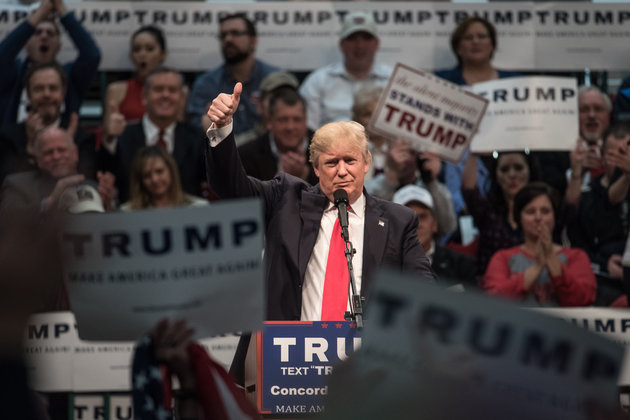
Donald Trump won the Michigan Republican primary handily on Tuesday, taking the majority of the state’s 59 delegates.
Trump’s margin of victory was narrower than polls had projected just a few days ago, however, thanks to a last-minute surge by Ohio Gov. John Kasich (R) who overtook Sen. Ted Cruz (R-Texas) for second place. Sen. Marco Rubio (R-Fla.) came in last in the race.
There had been signs in recent days that support for Kasich was climbing, with one poll showing his share of voters jumping 9 points over the weekend.
Kasich’s strong come-from-behind showing adds new intrigue to an already chaotic Republican contest. He can now point to his performance in Michigan as evidence that he appeals to the more moderate and independent voters that the party needs to win in the general election.
Although Michigan is a reliably Democratic state in presidential elections, it has a smaller share of "very conservative" voters than some other Republican primary states, according to data from the 2012 presidential primary. This means its results often indicate how well candidates could perform in a national election.
The Michigan primary results also increase the likelihood that Trump will not win an outright majority of delegates ahead of the party’s national convention in July, allowing for a brokered convention in which candidates lacking a plurality of votes can win the nomination.
Prominent Republicans desperate to stop Trump from becoming the GOP standard bearer appear to have pinned their hopes on a fractured field as the surest path to a brokered convention, rather than uniting behind a candidate who might defeat Trump on his own.
Kasich, who has the fewest Republican delegates by far, has effectively admitted that a brokered convention is his only path to the nomination.
The Michigan race is also a blow for Cruz, whose string of successes against Trump have strengthened his argument that he is the only candidate who can beat Trump. Cruz racked up unexpectedly big victories against Trump in the Maine and Kansas Republican caucuses on Saturday, and held Trump to a small margin in the Louisiana primary.
Attention now shifts to next Tuesday, when the delegate-rich states of Ohio, Florida, Illinois, Missouri and North Carolina will be up for grabs.
Ohio and Florida are especially crucial, since they award delegates on a winner-take-all basis and test the viability of home-state candidates Kasich and Rubio, respectively.
If Trump wins both states, he only needs to win 52 percent of the remaining delegates to avoid a contested convention, according to NBC News. By contrast, if Rubio wins Florida and Kasich takes Ohio, NBC estimates, Trump would need to pick up 69 percent of the remaining delegates to lock up the nomination before the convention.
Currently, Trump holds a nearly 15-point lead over Rubio in Florida, and a 7-point lead over Kasich in Ohio, according to HuffPost Pollster’s polling average.
- Publish my comments...
- 0 Comments
